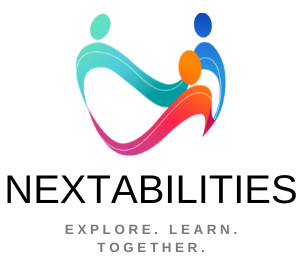
Future-Focused Innovations: A Research & Innovation Roundup
We’ve come across a wide range of innovative technologies and organizations that may never be the right fit for Seb — but we wanted to share them in case they’re helpful for someone else. In all cases, it’s important to talk to your healthcare provider or care team, or reach out to these groups directly, to understand whether they could be appropriate for you or your loved one. This isn’t medical advice — just a curated list of things we’ve discovered along the way that seem promising for certain conditions and that give us hope for the future of mobility, independence, and inclusion. If you know of something we should add, please message us — we’d love to keep learning alongside this community.
1. Neuromodulation & Exosuits (Wearable Mobility Tech)
Primer: Exosuits and neuromodulation devices are wearable technologies that aim to support movement or reduce stiffness. Some work like a robotic frame around the body (exoskeletons) to help people walk, while others use gentle electrical signals to relax tight muscles. These are still emerging, often available only in clinical trials or specialized centers, but they represent a future where mobility support could be lighter, smarter, and more tailored than traditional braces or wheelchairs.
- Ottobock Exopulse Mollii Suit — A full-body neuromodulation suit using 58 embedded electrodes to target spastic muscles through reciprocal inhibition, offering potential non-invasive relief for muscle stiffness and pain. Not FDA-approved in the U.S. yet. (ottobock.com)
- ReWalk / Wyss Institute Soft Exosuits — A lightweight, wearable soft-exosuit developed by Harvard’s Wyss Institute and licensed to ReWalk Robotics. Designed to enhance gait, mobility, and endurance in individuals with neurological conditions. (wyss.harvard.edu)
- Marsi Bionics — Creators of the “Atlas Pediatric Exo” and other pediatric exoskeletons designed for gait assistance and rehabilitation, with clinical evidence and focused pediatric application. (marsibionics.com)
- Trexo Robotics — A robotic mobility device (exoskeleton-like) that lifts children upright to enable overground walking. Designed for home and clinic use; known for adjustable assist levels and trial options. (trexorobotics.com)
- Ekso Bionics – Ekso Indego — A modular exoskeleton available in personal and clinical versions, originally for rehabilitation in conditions like brain injury, stroke, and spinal cord injuries. (eksobionics.com)
- MyoStep Project — A University of Houston research initiative developing a soft, pediatric exosuit aimed at improving gait training for young users without impeding natural motion. (myostep.wordpress.com)
- Wandercraft Atalante X — A self-balancing, hands-free exoskeleton for people with severe gait impairments, offering early-stage and adjustable gait assistance for rehabilitation. (en.wandercraft.eu)
💬 Join the conversation: Curious how other families are approaching exosuits, or want details on trials near you? Come share your questions and experiences in the community space.
2. Therapy & Support Access Platforms
- Coral Care — A therapy-on-demand platform (PT, OT, SLP) that connects families with licensed therapists in-home, covered by insurance in selected states, including Massachusetts. (joincoralcare.com)
- Ahoi — A crowd-sourced, accessibility mapping app built by and for people with mobility challenges. It provides location-specific reviews, photos, and access ratings—especially useful for community access. (ahoimate.com)
- Cami Health — A care coordination platform designed to reduce the mental burden on caregivers of children with complex needs, offering features like appointment tracking, provider communication, and information sharing. (cami.health)
Ahoi and Cami Health were both startups in the 2024 MassChallenge Healthcare Program.
3. Assistive Robotics, Prosthetics & Orthotics
Primer: Prosthetics and orthotics have come a long way from rigid wooden or plastic designs. Newer devices use lightweight materials, 3D printing, and even sensors to help users move more naturally. Some prosthetics can provide touch feedback, while modern orthotics can be custom-fit digitally rather than cast in plaster. These technologies are particularly transformative for people with limb differences or mobility challenges, offering a combination of function, comfort, and confidence.
- Psyonic — Creators of “Ability Hand,” a high-performance bionic prosthetic hand with touch feedback and rapid response. Developed in the U.S., it’s lightweight, durable, and advanced. (psyonic.io)
- Spentys — A digital orthotics company developing custom 3D-printed braces and supports that are lighter and faster to produce than traditional plaster-cast versions. (spentys.com)
- Invent Medical — Makers of highly customizable 3D-printed orthotics and prosthetics, including cranial remolding helmets and AFOs. (inventmedical.com)
(I had the opportunity to collaborate with Psyonic, Spentys, and Invent Medical during my time at Formlabs — each of them pushing the boundaries of what’s possible in prosthetics and orthotics.)
🤝 Swap experiences: Know someone exploring prosthetics or 3D-printed orthotics? Our community is a space to ask what’s worked, share frustrations, or trade resources.
4. Disability-Led Innovation, Investment, & Community Support
- 2Gether International — A global accelerator and supportive network enabling disabled founders to build high-impact startups, reframing disability as an advantage in entrepreneurship. (I heard the 2GI Founder, Diego, speak at the Yale Innovation Summit.) (2gether-international.org)
- AT Impact Fund — An impact investment fund dedicated to accelerating access to assistive technologies globally. (atimpactfund.com)
- Disability Innovation Institute / UCL Global Disability Innovation Hub — Based in the UK, this initiative advances inclusive design, accessibility research, and innovation in assistive tech. (disabilityinnovation.com)
- Adaptation VC — A venture capital firm investing in inclusive and adaptive technologies for disabled and aging populations. (adaptation.vc)
- Enable Ventures (Sorenson Impact) — A $200M impact fund focused on disability-led innovation, backed by Sorenson Impact. (enableventures.vc)
- Perkins School for the Blind – Howe Innovation Center — Perkins’ global innovation hub focused on accessibility, inclusive education, and assistive technology. (Perkins is also a 2024 partner of my current employer, MassChallenge.) (perkins.org/innovation)
Why This Matters (And What’s Next)
These technologies and organizations span wearable robotics, access equality, caregiving tools, prosthetics, orthotics, and disability-led investment. While they may not align with our current needs, sharing them helps families:
- Stay informed about emerging tools that might become viable options later.
- Understand the growing ecosystem where healthcare, technology, and lived experience meet.
- Recognize that the innovation pipeline isn’t just tech—it’s funding, community, and systems change.
🌱 Help shape what’s next: Have ideas, questions, or want to request information about something you don’t see here? Join us to connect with others and guide future research topics.
Coming soon: We’ll publish deeper reviews of select items and conversations with founders, investors, and families shaping this space.
SEO & Meta Package
Meta Title (SEO):
Future-Focused Innovations in Disability Tech: Exosuits, Prosthetics, and Community Solutions
Meta Description (SEO):
Explore emerging disability innovations — from pediatric exosuits and 3D-printed orthotics to therapy platforms and disability-led funds. A curated roundup with resources for families and caregivers.
Focus Keywords:
- disability innovation
- pediatric exoskeletons
- 3D printed orthotics
- assistive technology startups
- special needs parenting resources
Pinterest Title:
Disability Innovation Roundup: Exosuits, Prosthetics & More
Pinterest Description:
From wearable exosuits to 3D-printed orthotics and disability-led innovation funds, this roundup shares future-focused tools and resources for families and caregivers.
Pinterest Hashtags:
#DisabilityInnovation #AssistiveTech #Exosuits #Orthotics #SpecialNeedsParenting #InclusiveDesign

